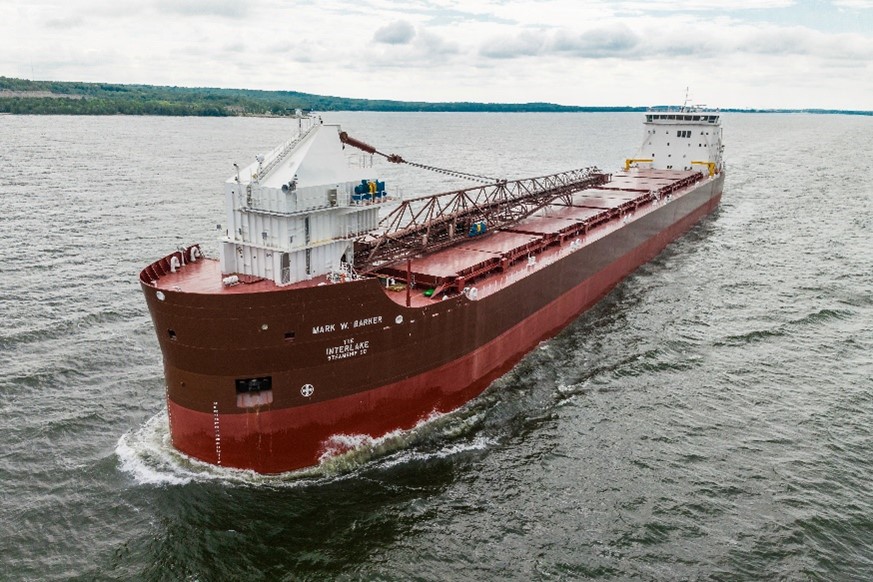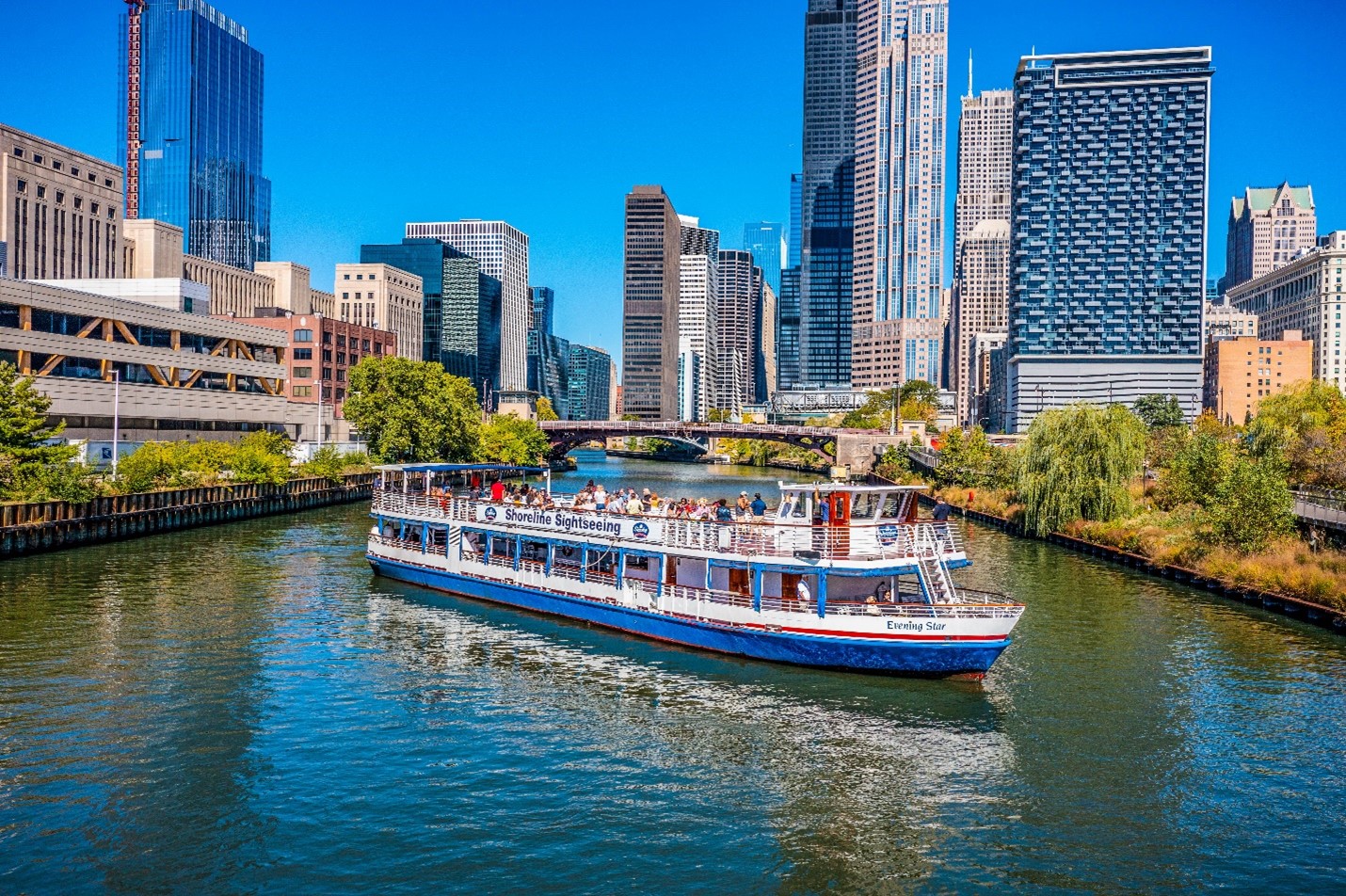Capital Construction Fund

Operators of American-flag vessels are faced with a competitive disadvantage in the construction and replacement of their vessels relative to foreign-flag operators whose vessels are registered in countries that do not tax shipping income. The Capital Construction Fund (CCF) program was established to counterbalance this situation by helping owners and operators of United States-flag vessels secure the capital necessary to modernize and expand the U.S. merchant marine. The program encourages construction, reconstruction, or acquisition of vessels through the deferment of Federal income taxes on certain deposits of money or other property placed into a CCF. Participants must meet U.S. citizenship requirements.
Authorized under 46 USC Chapter 535 (formerly sec. 607 Merchant Marine Act of 1936 as amended), the CCF Program was significantly expanded in December 2022 with the passage of the National Defense Authorization Act for Fiscal Year 2023 ("2023 NDAA"). Section 3544 of the 2023 NDAA extended the use of the program to all U.S. built vessels which are engaged in the domestic or foreign commerce of the United States, doing away with limitations on the availability of the CCF program to certain geographic trades that had been in effect. As of the end of 2023, $2.6 billion was on deposit and the program included 136 participants.
CCF Program Presentation here.
See the latest list of fundholders.
Apply here.
CCF Program Highlights
Goals
- Strengthen maritime industry - critical to U.S. economy
- Maintain domestic shipbuilding and maintenance capabilities
- Sustain vibrant U.S. Merchant Marine
Benefits
- Deferral of taxes on vessel earnings, gain and depreciation
- Investment earnings deferred
- Long investment period - up to 25 years
- Deferred taxes paid throughout life of new vessel
- Stimulates growth and modernization of the U.S. maritime industry
Program Requirements
- Applicant and vessel to meet eligibility requirements
- CCF Agreement between applicant and MARAD
- CCF-built vessels must operate in qualified trade for up to 20 years
- Funds held in a separate account at a MARAD-approved depository
- MARAD approves sale of CCF-built vessels
- Post-agreement signing, annual reporting to MARAD is required, and as needed, updated lists of vessels, changes to depositories and plans submitted to MARAD
Eligibility
Vessels
Vessels built with any amount of CCF funding must be built in the United States and documented under the laws of the United States for operation in the nation’s foreign or domestic commerce. Eligible CCF vessels constructed, reconstructed, or acquired under the CCF program can span a wide spectrum, including large containerships, crude oil and petroleum product tankers and articulated tug barges, self-unloading Great Lakes bulk carriers, tugs, barges, supply vessels, ferry and passenger vessels and crew transfer vessels.
Participants
Eligible applicants are a U.S. citizen or corporation, partnership or other business. The applicants must own or lease (including share interest) in an "eligible vessel".
Who Benefits?
Companies utilizing the benefits of the CCF program represent a broad cross section of the U.S. maritime industry. Operators range in size, from large consolidated companies to partnerships and sole proprietors, but all have one thing in common -- understanding that the CCF program can lower the cost of replacing or adding new vessels or upgrading their existing fleet, which can significantly accelerate the time frame for accumulating capital for such purposes and be used to pay down existing vessel debts (as long as the vessel is part of an overall building program). Current operator types include, for example:
- Liner companies that operate containerships and other specialized vessels from the West Coast of the United States to points in the Far East and Hawaii;
- Owners of crew transfer vessels supporting offshore windfarms in the Northeast;
- Bulk vessel operators moving ore and operators providing ferry and passenger service on the Great Lakes;
- Companies specialized in offshore towing and supply operations that serve oil drilling and production rigs off U.S. coasts and in foreign waters;
- Tug and barge operators providing service between domestic ports and points in Alaska, on the river system in Alaska, and in the Gulf of Alaska;
- Cruise vessels and tug-barge operators providing inter-island service in the Hawaiian Islands; and
- Sightseeing boat operators in major American cities.
The 2023 NDAA's expansion of the CCF now permits additional operators to use CCF funds to expand, replace or modernize their fleets. Such operators include:
- Companies offering sightseeing, dinner and "eco-tour" cruises;
- Passenger and auto ferry service operators throughout the United States;
- Operators of towboats and barges in the inland waterways;
- Harbor service operations providing bunkering, crew launch and ship assist services and;
- Coastal tug and barge operators.
Administrative Responsibility
The Department of Transportation’s Maritime Administration (MARAD) and the Department of Commerce’s National Oceanic and Atmospheric Administration (NOAA) are responsible for administering the CCF program, with MARAD handing commercial vessels, and NOAA handling those in the fishing industry.
Other Contacts
Parties interested in the program as it relates to fishing vessels should contact:
CCF Program, Financial Services Division (F/MB5)National Marine Fisheries Service
1315 East West Highway
Silver Spring, MD 20910
(301) 713-2393
or their website (NOAA Website)

